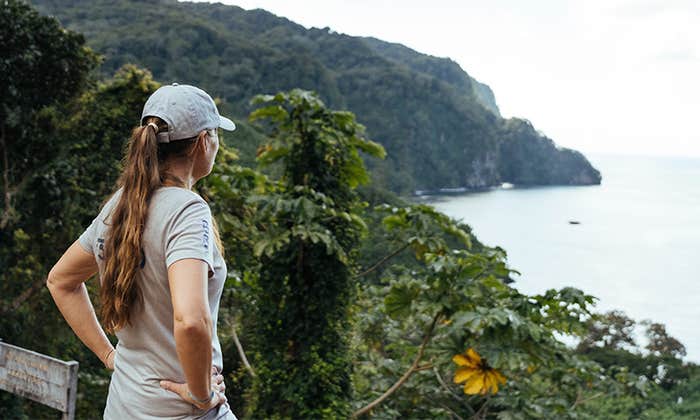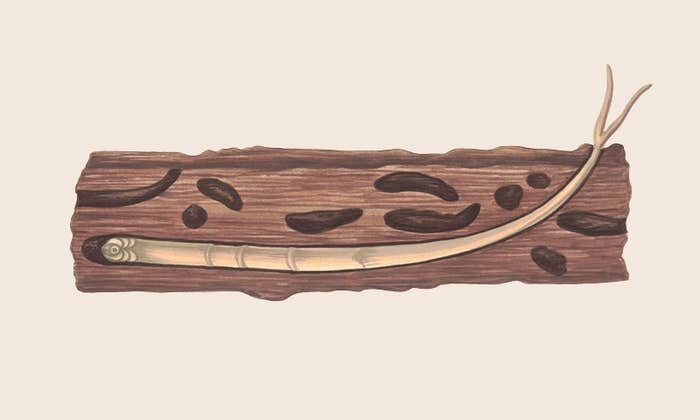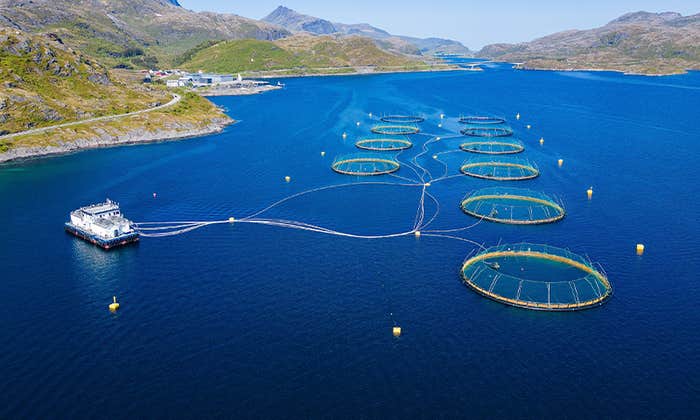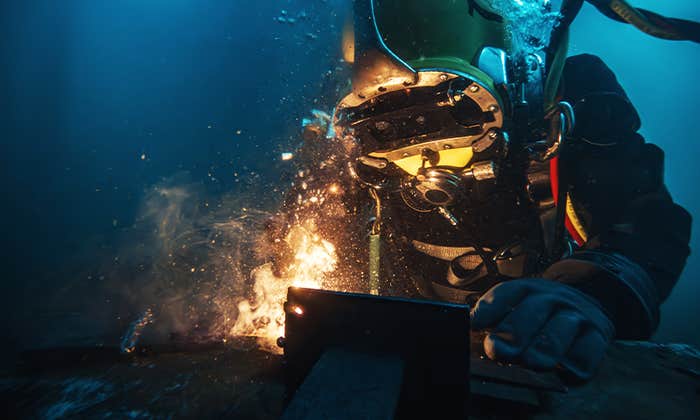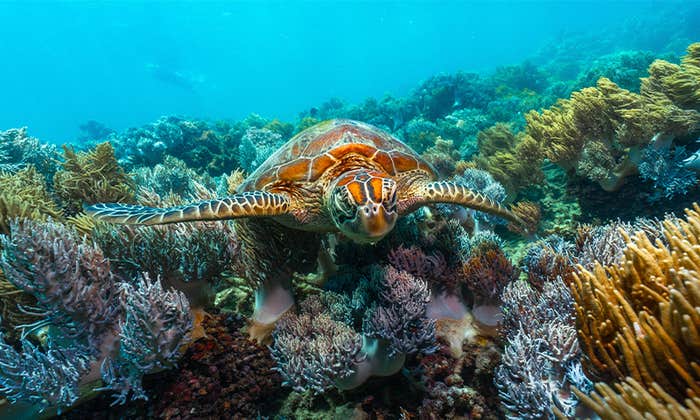Some fish are more likely than others to be caught. Imagine an angler casting their line into a lake, a lure dangling in the water: This may go unnoticed by some pike who are naturally shy. But other pike are risk-takers and are more likely to venture out, despite the risk of being gobbled up by predators. Usually, it is the bold fish who finds the bait and gets dragged out of the water.
Until recently, many scientists didn’t appreciate these dynamics, and thought about fishing’s consequences mainly in terms of fish abundance. The research is young, but it’s clear that killing 1.6 trillion wild fish every year—the estimated toll of global fisheries—might also have subtle, long-term consequences on the animals’ minds and bodies because fishing does not affect fish within a population equally but instead targets certain individuals. It often selectively scoops up large fish in nets or attracts fish with particular behaviors. This, in turn, could impact fisheries as well as entire aquatic ecosystems. Potentially, “you could have repercussions for the whole functioning of the food web,” says evolutionary physiologist Amélie Crespel of the University of Turku in Finland. This is because fishing can gradually change the makeup of the remaining population. Over many generations, it could even influence fish evolution.
“If you’re forced to die young, then you live fast.”
For instance, if shy behavior is underpinned by certain genes, and only those genes get passed on to offspring, a whole population over time would evolve to become shy. But the most striking of these changes involve size. Researchers have long noticed that many species under intense fishing pressure have become smaller in recent decades. For some species, such as Atlantic cod, this is probably because trawl nets selectively scoop up large, old fish. Some scientists also suspect an evolutionary effect where intensively-fished populations evolve to grow smaller or mature more quickly, explains evolutionary biologist Beatriz Pauli at the Norwegian Directorate of Fisheries.
Proving that fish are evolving is tricky, especially in the wild, as it requires long-term tracking of the animals’ genes. But experiments show that fishing does disproportionately target individuals with certain traits, something that can change the makeup of the remaining population in ecologically significant ways—and in the long term might lead to evolutionary change. In one yet-unpublished study conducted while Pauli was at the University of Bergen, she and her colleagues raised hundreds of tiny guppies and simulated the effect of size-selective trawling. In one set of tanks, they removed one-quarter of guppies longer than 16 millimeters; in other tanks, they followed the same schedule, but picked only smaller guppies or selected them at random without regard for size. Over time, male fish exposed to the trawling-like scenario started to mature much earlier. The females, meanwhile, produced offspring at younger ages.
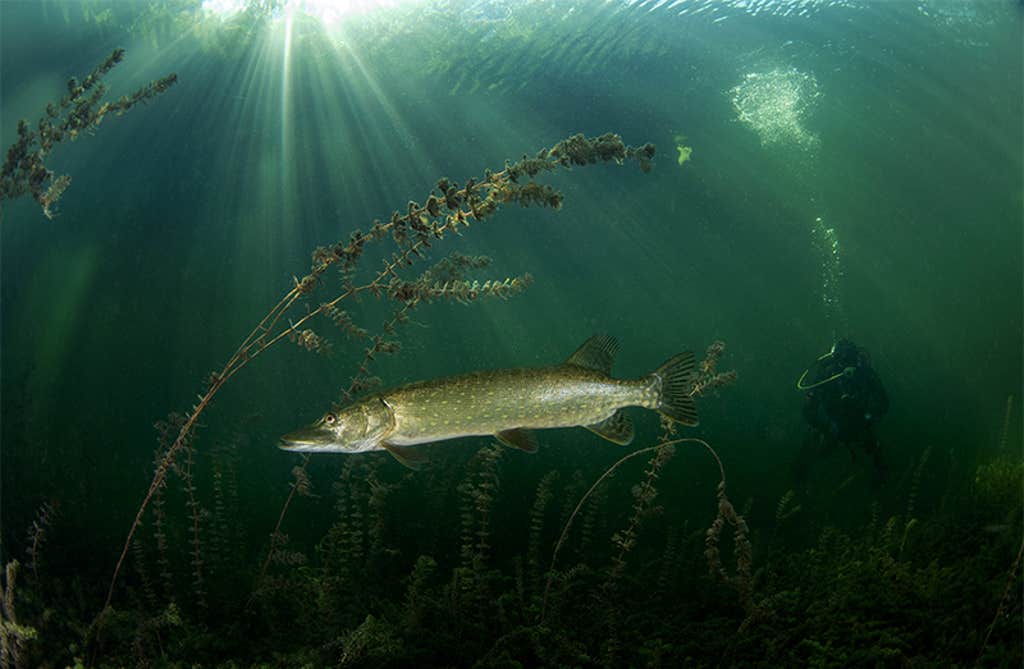
While Pauli doesn’t have genetic proof that the fish actually evolved these changes, she hypothesizes that the trawling-mimicking experiment essentially forced the fish to evolve a growth strategy that supercharges their maturation, thus increasing their chances of reproducing before being caught. “If you’re forced to die young, then you live fast, right? This is what the fishery is doing,” Pauli says. Curiously, these faster-living fish also behaved differently, being bolder and eating more—likely a strategy to help fuel their accelerated life histories, Pauli says.
The effects of harvesting on fish behavior also depend on the methods used. In contrast to trawling, where fishers target shoals of fish, behavioral changes are more pronounced with more passive methods like angling, trapping, and gill-netting that take advantage of individual fish behavior, explains fisheries scientist Robert Arlinghaus of the Leibniz Institute of Freshwater Ecology and Inland Fisheries in Germany.
By carefully tracking the activity of pike in a German lake, Arlinghaus and his colleagues learned that the most active, boldest pike tended to be caught by anglers, while more timid fish were left behind. Because bold and shy behavior is partly determined by a fish’s genes, “we expect in this population that the fish become shyer over time,” says Arlinghaus, who is also affiliated with the Humboldt University of Berlin.
In another lake experiment in Illinois, Arlinghaus and his colleagues investigated which large-mouth bass were most likely to go after vibrating artificial lures. Among males, aggressive individuals were the most eager to bite. The same males were also the best parents, guarding their nests and defending their offspring with exceptional devotion. Unfortunately for the fish, that means anglers “probably capture the fish that are better dads,” Arlinghaus says.
Proving that fish are evolving is tricky, especially in the wild.
A fish’s social habits may also affect their odds of being caught. In experiments with zebrafish—a popular subject of lab studies—the ecologist Shaun Killen of the University of Glasgow and his team found that more social fish tend to be caught by traps, something that Crespel also saw in simulated trawl experiments. As soon as one individual enters a trap, Killen observed, others follow. And if one fish finds a way out but their friends remain trapped, that fish will go back inside. “The worst-case scenario is that there could be evolution against being social,” he says, although much more research is needed to know if this is happening in the real world.
Arlinghaus, meanwhile, is studying how fishing could affect other aspects of fish cognition and intelligence. If species evolve to reproduce at earlier ages, they may invest more energy into rapid reproduction and less into brain development, and ultimately become less intelligent. But in some situations where recreational anglers release fish after capture, clever fish might have an advantage by learning to evade hooks, making them more likely to survive and reproduce. Those populations could theoretically evolve to become smarter over time, he says.
To what extent such shifts are actually happening in the wild is a mystery. But if fish minds, behaviors, and bodies are indeed changing, that could have far-reaching effects. The most obvious consequences are for fisheries: If they’re targeting the largest, most easily-caught individuals, then populations will eventually consist of smaller, harder-to-catch fish. “So it’s not just going to be less money per fish, but you’re going to have to work more hours to be able to catch that fish,” Pauli says.
These effects may be especially hard to reverse if fish have indeed evolved these traits, Crespel adds. If small, shy fish are simply the ones left behind, but the changes aren’t part of their genetic inheritance, they could relatively easily recover their former traits if left alone—but if the gene pool has changed, recovery could take a very long time.
Larger aquatic food chains may also be affected. Shorter-lived fish with a live-fast, die-young tendency might consume more food, driving down populations of their prey. Predators might have an easier time catching fish who have become less social and thus less likely to swim in large shoals for protection. On the other hand, if predatory fish become more timid, they might hunt and eat less of their prey. That could lead to increases in herbivorous fish populations, Arlinghaus speculates, with downstream effects like overgrazing of marine vegetation. “There’s so much that we don’t know,” Killen says.
However far-ranging the effect of fishing on aquatic ecosystems might be, Crespel stresses that these changes are unnatural—and they’re acting upon ecosystems that are already being transformed by overfishing, climate change, and pollution. To avoid compounding those problems by causing fish to evolve in unnatural ways, says Crespel, perhaps fisheries should consider changing their practices to target a broader variety of fish characteristics. Catching fewer fish and avoiding overfishing would also help reduce pressure on fish populations.
“We need to start thinking about how not to impact the evolution of the fish too much,” Crespel says. ![]()
Lead image: Annette Shaff / Shutterstock

































